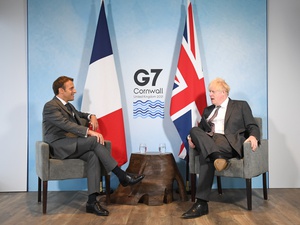
By David Hughes, PA Political Editor and Q Radio News
The European Union has acted in an “offensive” way by repeatedly refusing to treat Northern Ireland as part of the UK, Dominic Raab has claimed.
The Foreign Secretary deepened the rift with Brussels over the trading arrangements which apply to Northern Ireland under the Brexit deal, accusing EU figures of showing a lack of respect to the UK.
His comments came after Emmanuel Macron reportedly suggested Northern Ireland was not part of the UK during his talks with Boris Johnson in the margins of the G7 summit.
“What we cannot have is the continuing disruption of trade and effectively try to change the status of Northern Ireland, contrary to the consent and wishes of the people, which is not just contrary to the Northern Ireland Protocol but also to the Belfast Agreement,” Mr Raab told Sky News.
“We have serially seen senior EU figures talk about Northern Ireland as if it was some kind of different country to the UK. It is not only offensive, it has real world effects on the communities in Northern Ireland, creates great concern, great consternation.
“Could you imagine if we talked about Catalonia, the Flemish part of Belgium, one of the lander in Germany, northern Italy, Corsica in France as different countries? We need a bit of respect here.”
Meanwhile, DUP leader Edwin Poots says he has written to President Macron and attached a copy of the Belfast Agreement, highlighting the section about Northern Ireland's constitutional status.
Mr Poots described the alleged comments surrounding Northern Ireland's status in the UK as "offensive".
I’ve written to Emmanuel Macron & attached the Belfast Agreement with relevant section highlighted.
— Edwin Poots MLA (@edwinpootsmla) June 13, 2021
Evidently key leaders in the EU do not understand the basics let alone the finer details.
Full statement 👇https://t.co/Ar44W28Zyd https://t.co/cDLz1pU3NB
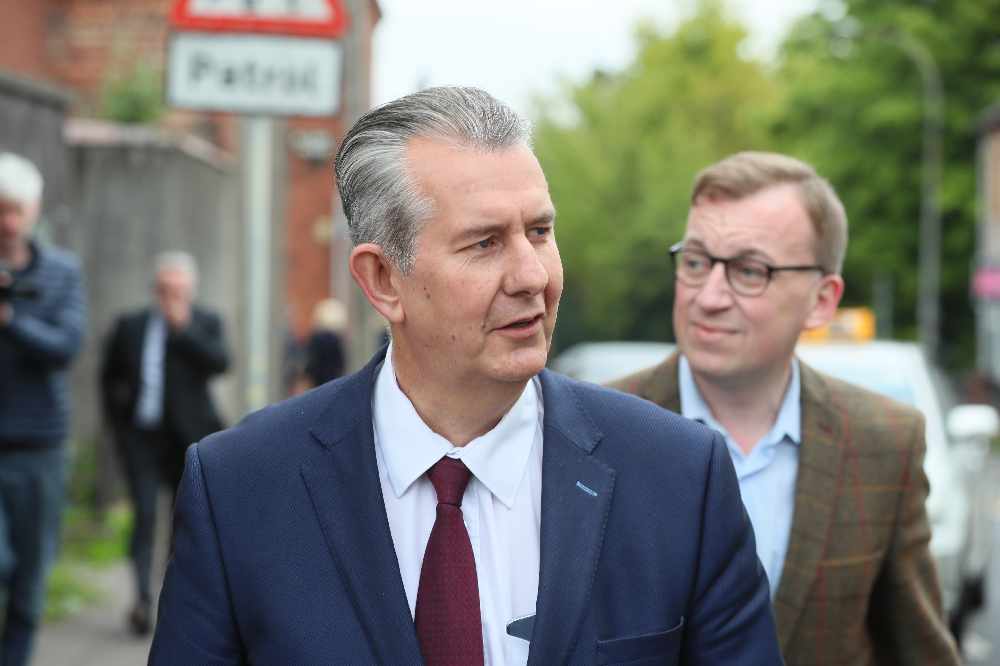
DUP leader Edwin Poots
The Prime Minister will hold a press conference on Sunday afternoon at the conclusion of a gathering which has seen him clash with European Union leaders.
Mr Johnson has threatened to unilaterally delay the imposition of checks on goods crossing the Irish Sea to Northern Ireland in protest at the way in which the deal he agreed is being implemented.
The Prime Minister met French President Emmanuel Macron, German Chancellor Angela Merkel, European Commission chief Ursula von der Leyen and European Council president Charles Michel in the margins of the summit on Saturday.
Mr Johnson appeared frustrated at the way the talks had gone, saying: “I’ve talked to some of our friends here today who do seem to misunderstand that the UK is a single country and a single territory.
“I think they just need to get that into their heads.”
The comment may have been prompted by his talks with Mr Macron over the ban on shipping chilled meats from Great Britain to Northern Ireland, which is due to come into force at the end of the month.
The Sunday Telegraph said the Prime Minister attempted to explain his frustration with the Northern Ireland Protocol – the part of the Brexit divorce deal covering the arrangements – by asking Mr Macron what he would do if sausages from Toulouse could not be moved to Paris.
The French president reportedly claimed the comparison did not work because Paris and Toulouse were both part of the same country, wrongly suggesting Northern Ireland is not within the UK.
The Prime Minister’s official spokesman said he was “not going to get drawn into the discussions the Prime Minister had with president Macron”.
Mr Johnson is considering extending the current grace period without the consent of Brussels to ensure that sausages and mince can continue to reach Northern Ireland’s shops.
The Prime Minister insisted he would do “whatever it takes” including using Article 16 of the Protocol to act without Brussels’ agreement, which would trigger retaliations from the EU in a dispute which has been dubbed the “sausage war”.
In the main business on the final day of the summit, the leaders of the G7 – the UK, US, Canada, Japan, France, Germany and Italy – will make a series of environmental commitments in Carbis Bay.
Environmentalist Sir David Attenborough will deliver a pre-recorded message to the G7, plus guests Australia, India, South Korea and South Africa, at a session on climate and nature.
In advance of the session, he said: “The natural world today is greatly diminished. That is undeniable.
“Our climate is warming fast. That is beyond doubt. Our societies and nations are unequal and that is sadly plain to see.
“But the question science forces us to address specifically in 2021 is whether as a result of these intertwined facts we are on the verge of destabilising the entire planet?
“If that is so, then the decisions we make this decade – in particular the decisions made by the most economically advanced nations – are the most important in human history.”
Mixed in with the environmental intentions of the G7 is an attempt to reassert the values of the world’s leading democracies.
The “build back better for the world” plan will bring together G7 countries to develop an offer for high quality financing for vital infrastructure, from railways in Africa to wind farms in Asia.
The move is part of an attempt to counter Beijing’s “belt and road” initiative which has spread Chinese influence around the globe.
The new approach is intended to give developing countries access to more, better and faster finance, while accelerating the global shift to renewable energy and sustainable technology.
Mr Johnson said: “Protecting our planet is the most important thing we as leaders can do for our people.”
G7 nations are expected to commit to almost halve their emissions by 2030 relative to 2010, the UK has already exceeded that, pledging a 58% reduction.
The countries will set out the action they will take to slash carbon emissions, including measures like ending all unabated coal use as soon as possible, halting almost all direct government support for the fossil fuel energy sector overseas and phasing out petrol and diesel cars.
The G7 will also endorse a nature compact, aimed at halting and reversing biodiversity loss by 2030 – including supporting the global target to conserve or protect at least 30% of land and oceans by the end of the decade.
Mr Johnson has also launched the UK’s blue planet fund, with £500 million to help countries including Ghana, Indonesia and Pacific island states tackle unsustainable fishing, protect and restore coastal ecosystems like mangroves and coral reefs, and reduce marine pollution.
The fund will run for at least five years.
Mr Johnson met South African president Cyril Ramaphosa and South Korean leader Moon Jae-in on Sunday morning.


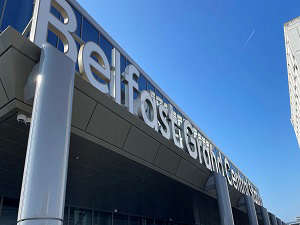 Legal papers lodged in challenge to Irish language signs at Belfast station
Legal papers lodged in challenge to Irish language signs at Belfast station
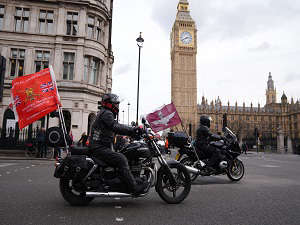 Bikers to descend on Westminster for veterans protest against Legacy Act repeal
Bikers to descend on Westminster for veterans protest against Legacy Act repeal
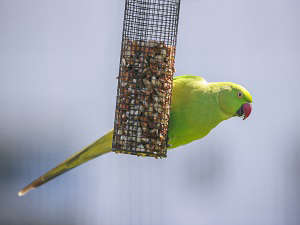 Guidance sought over future of colourful parakeets in Belfast park
Guidance sought over future of colourful parakeets in Belfast park
 Woman released after questioning over pipe bombs in Co Down
Woman released after questioning over pipe bombs in Co Down
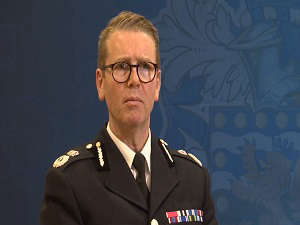 Suspended chief constable will not be prosecuted over alleged sexual offences
Suspended chief constable will not be prosecuted over alleged sexual offences